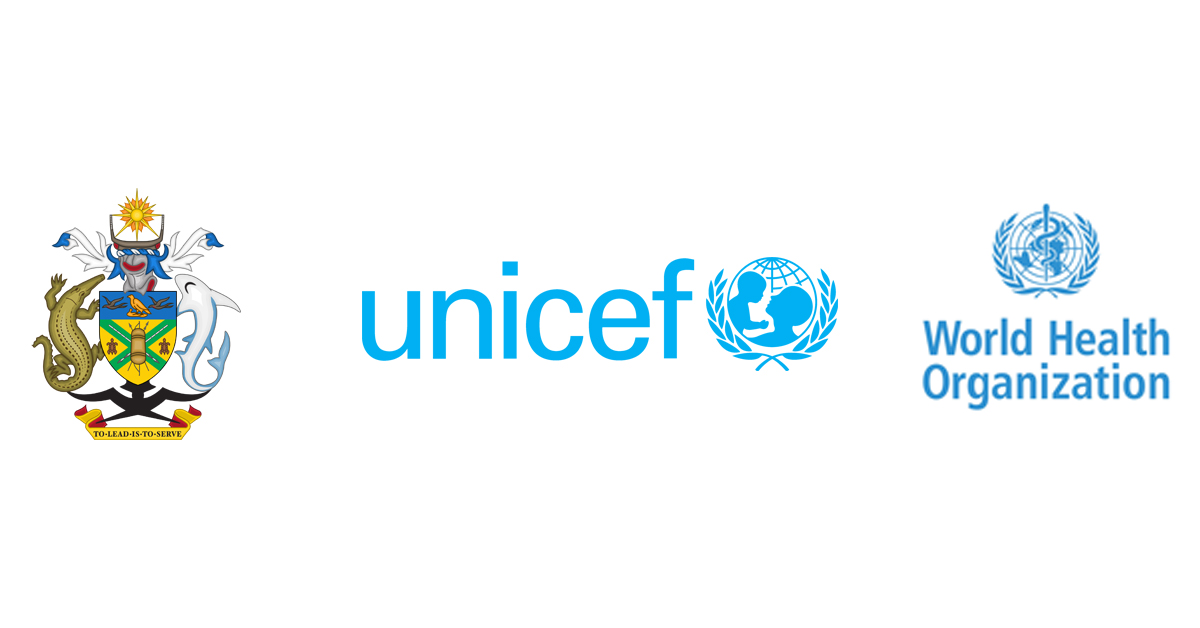

Response to “alternative drug to COVID-19 vaccines – Ivermectin” article published by Solomon Star
While national efforts to roll out COVID-19 vaccines nation-wide is ongoing, we expect from the media is a balanced, well- informed news article interpreted with qualification, yet it is with regret that Solomon Star, our leading daily print media have decided otherwise.
As such, The Ministry of Health together with its partners, WHO and UNICEF wish to make clarification to the article, which suggest that Ivermectin, drug used to treat parasite infestation, can be used as an alternative to COVID-19 vaccines and thus implies that vaccination may not be necessary.
The current recommendations on use of ivermectin for treatment of COVID-19 as per WHO policy is available at
The recommendations clearly state that “the current evidence on the use of ivermectin to treat COVID-19 patients is inconclusive. Until more data is available, WHO recommends that the drug only be used within clinical trials.”
This recommendation, which applies to patients with COVID-19 of any disease severity, is now part of WHO’s guidelines on COVID-19 treatments.
Ivermectin is a broad spectrum anti parasitic agent, included in WHO’s essential medicines list for several parasitic diseases. It is used in the treatment of onchocerciasis (river blindness), strongyloidiasis or disease caused by round worm, and other diseases caused by soil transmitted helminthiasis (infestation with parasitic worm). It is also used to treat scabies.
International Panel of experts under the WHO as well as other regulatory authorities have studied all the data from clinical trials where Ivermectin has been tested and have concluded that there is little evidence to support the usefulness of Ivermectin in COVID 19 treatment and management.
The Australian Guidelines on treatment of COVID-18 (https://covid19evidence.net.au/#living-guidelines_also ascertains similar viewpoint.
Many studies are still ongoing regarding potential use of ivermectin for treatment of COVID-19 and the MHMS and our doctors at the NRH are actively monitoring the updated information.
The article based on conviction that Ivermectin as an alternative solution to tackle COVID-19 questions the current national efforts to increase vaccine coverage. The race against time to vaccinate all eligible members of the population, is simply due to the imminent threat of COVID-19 and the delta variant which spreads much faster than the original strain. Nothing more, nothing less.
The esteemed author of this article seems to have misplaced priorities and has tried to put his personal viewpoint and comparing apples with oranges. Basically, the author is making a poor comparison, VACCINE IS FOR PREVENTION while the ivermectin he referred to (which also lacks scientific evidence) is for treatment as part clinical trials. Is the author trying to suggest that we should get COVID and treat it with ivermectin instead of preventing it by taking vaccine? We all know that prevention is better than cure. Once you get COVID, people are suffering from disease, have bad symptoms which could last for months and risk death.
Rapid deployment of efficacious COVID-19 vaccines is one of the few true success stories from this pandemic. The urgency to vaccinate as many people as possible and as quickly as possible is to prevent further variants from threatening the progress made so far and prolonging the pandemic.
Vaccines are effective against severe diseases caused by variants and in the event of an outbreak in Solomon Islands, the more people that are fully vaccinated, the less the impact will be. The effect of an outbreak in an unvaccinated population is clear to see globally and closer to home in neighboring countries.
In terms of Adverse Events Following Immunization (AEFI) to date no deaths have been recorded with only one case of severe reaction called anaphylaxis. The case was immediately treated and recovered well. A total of 4 cases of serious reaction was also recorded and treated and a total of 469 expected and minor side effects were reported following immunization which includes headaches, fever, discomfort, sweating, nausea, dizziness etc.
Vaccinators in Solomon Islands are well trained and work along teams of medical doctors for adverse events management as stated above. During registration, while completing the forms, history of chronic diseases is elicited and people are encouraged to get tested for diabetes and measure the blood pressure.
With this, journalists and media personals are encouraged to verify and corroborate information before publishing.
-MHMS Press